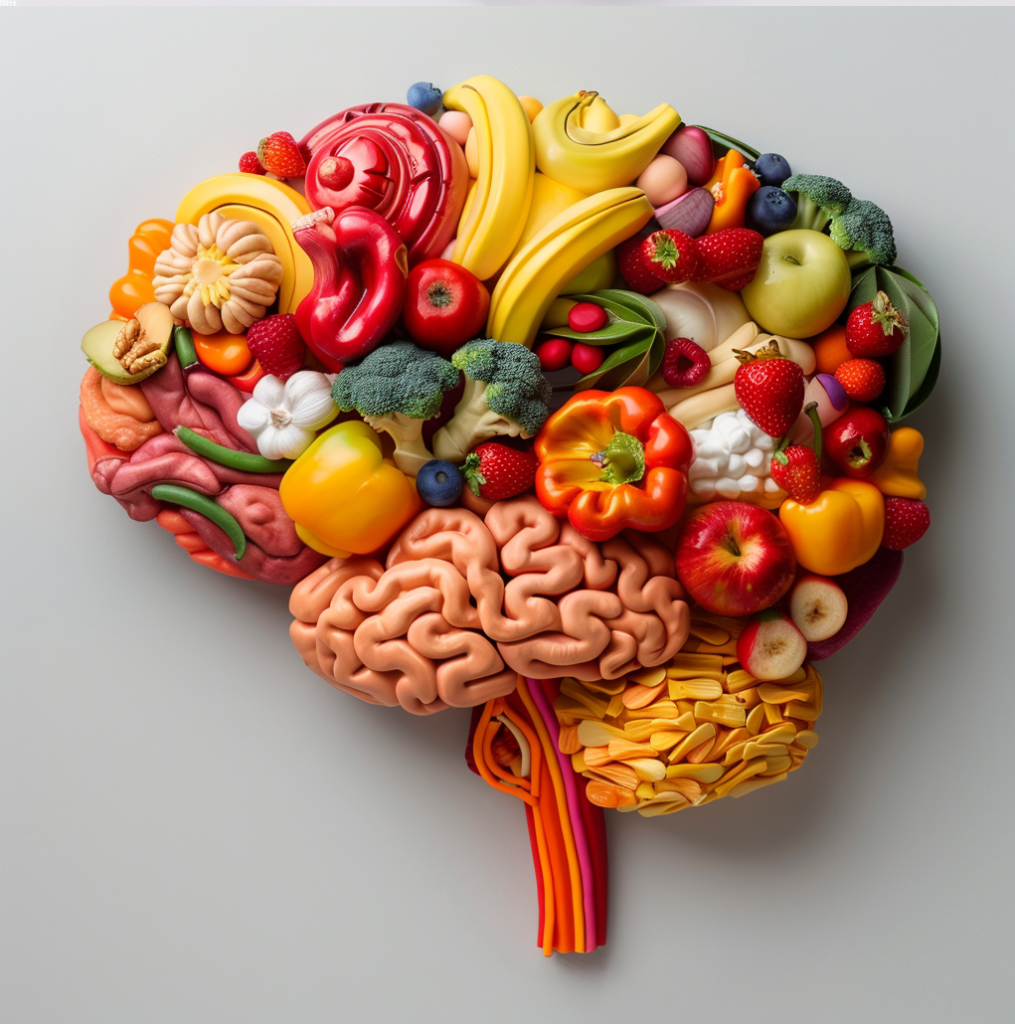The Importance of Nutrition for Cognitive Function
The Importance of Nutrition for Cognitive Function

By Julia Haimovich, Accredited Practicing Dietitian.
In the rush of daily life, we often overlook how vital nutrition is for our cognitive well-being. Yet, the undeniable link between our diet and brain function deserves closer attention. Let’s explore why nutrition matters more than we may realize.
Fueling the Brain: The Role of Nutrients
Physiologically, the brain is a powerhouse that constantly needs nutrients to maintain its intricate functions. Glucose, as a primary fuel source, is crucial for effective neuron firing and signal transmission. Inadequate glucose supply can lead to brain fog, decreased concentration, and impaired memory recall.
Beyond glucose, the brain relies on various vitamins and minerals for neurotransmitter synthesis and overall neural health. Vitamin B complex supports energy metabolism and neurotransmitter production, while vitamin D is linked to cognitive function and mood regulation. Minerals like magnesium and zinc are essential for synaptic plasticity and proper neuronal communication.
Consequences of Nutritional Deficiencies
When we lack these essential nutrients, cognitive function suffers. Nutritional deficiencies, whether from poor dietary choices or underlying health conditions, can impair memory consolidation, hinder concentration, and contribute to mood disorders such as depression and anxiety.
Nourishing the Brain: Nutrient-Rich Foods
Fortunately, nature provides abundant foods rich in the nutrients our brains need. Omega-3 fatty acids, found in fatty fish like salmon, mackerel, and sardines, support cognitive function, protect against cognitive decline, and promote overall brain health.
Dark leafy greens such as spinach and kale are packed with antioxidants like vitamin E and folate, which combat oxidative stress and inflammation in the brain. Berries, known for their vibrant colours and flavours, are also rich in antioxidants linked to improved cognitive function and neuroprotection.
Protein-rich foods like lean meats, eggs, and legumes provide the building blocks for neurotransmitters like dopamine and serotonin, which are crucial for mood regulation and cognitive performance. Whole grains, nuts, and seeds offer complex carbohydrates, fibre, and micronutrients to fuel the body and the brain.
Prioritizing Cognition Nutrition
Cognition nutrition is not merely a buzzword; it’s a fundamental aspect of overall health and well-being. By nourishing our bodies with a balanced diet rich in essential nutrients, we can support optimal brain function, enhance memory and concentration, and safeguard against cognitive decline. So, next time you choose a snack or plan your meals, remember the profound impact that nutrition can have on your cognitive prowess.
References:
- Nimgampalle, M., Chakravarthy, H., & Devanathan, V. (2021). Glucose
metabolism in the brain: An update. In Recent Developments in Applied
Microbiology and Biochemistry (pp. 77-88). Academic Press. - Tardy, A. L., Pouteau, E., Marquez, D., Yilmaz, C., & Scholey, A. (2020). Vitamins
and minerals for energy, fatigue and cognition: a narrative review of the
biochemical and clinical evidence. Nutrients, 12(1), 228. - Brainard, J. S., Jimoh, O. F., Deane, K. H., Biswas, P., Donaldson, D., Maas, K.,
… & Winstanley, L. (2020). Omega-3, omega-6, and polyunsaturated fat for
cognition: systematic review and meta-analysis of randomized trials. Journal of
the American Medical Directors Association, 21(10), 1439-1450. - Baroni, L., Sarni, A. R., & Zuliani, C. (2021). Plant foods rich in antioxidants and
human cognition: a systematic review. Antioxidants, 10(5), 714. - Muth, A. K., & Park, S. Q. (2021). The impact of dietary macronutrient intake on
cognitive function and the brain. Clinical Nutrition, 40(6), 3999-4010.